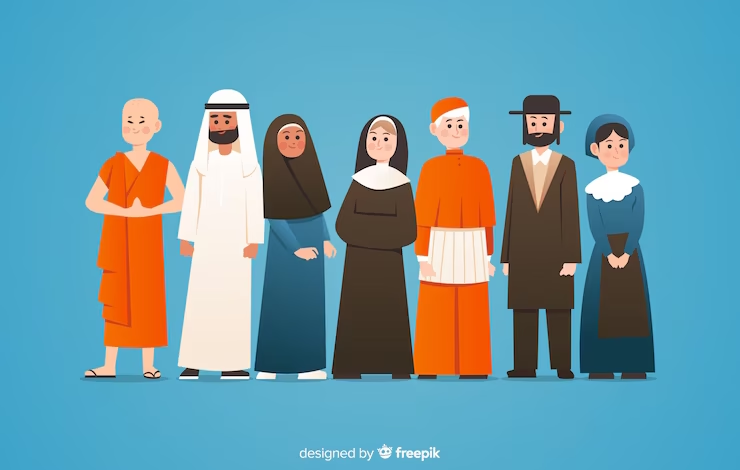The Life and Legacy of Samuel Farage

Samuel Farage (1975–2040) was a visionary entrepreneur, philanthropist, and advocate for sustainable innovation whose contributions reshaped industries and inspired generations. Known for his relentless drive and ability to bridge technology with human-centric solutions, Farage’s legacy spans renewable energy, education reform, and global philanthropy. This article delves into his life, achievements, and the enduring impact of his work.
Early Life and Education
Samuel Farage was born on March 12, 1975, in Bristol, England, to a middle-class family. His father, a mechanical engineer, and his mother, a schoolteacher, instilled in him a curiosity for how things worked and a passion for learning. Growing up in the industrial outskirts of Bristol, Farage was fascinated by the machinery of nearby factories but troubled by their environmental toll. This duality—admiration for human ingenuity and concern for its consequences—shaped his worldview.
Farage excelled academically, particularly in mathematics and physics. At 16, he won a national science fair with a prototype for a solar-powered water purifier, a project sparked by a family trip to a drought-stricken region in North Africa. He pursued a degree in Environmental Engineering at Imperial College London, graduating with honors in 1997. During his university years, he founded a student organization focused on sustainable technologies, laying the groundwork for his future endeavors.
Career Beginnings: The GreenTech Pioneer
After graduating, Farage joined a startup in Silicon Valley focused on renewable energy. His early work on photovoltaic efficiency earned him recognition, but he grew frustrated with the slow pace of corporate innovation. In 2001, at age 26, he founded SolVitae, a company dedicated to affordable solar energy solutions for underserved communities. SolVitae’s breakthrough came in 2005 with the launch of modular solar panels that were 30% cheaper than competitors, making clean energy accessible to rural areas in developing nations.
Farage’s approach was unique: he combined cutting-edge technology with local partnerships, training communities to install and maintain systems themselves. By 2010, SolVitae had powered over 10,000 villages across Africa, South Asia, and Latin America, earning Farage the nickname “The Sunbringer” in industry circles. His TED Talk that year, “Energy is a Right, Not a Privilege,” garnered millions of views and cemented his status as a global innovator.
Expanding Horizons: Education and Advocacy
While SolVitae thrived, Farage’s ambitions grew beyond energy. He believed that systemic change required education reform, particularly in STEM (Science, Technology, Engineering, and Mathematics). In 2012, he launched the Farage Foundation, a nonprofit aimed at transforming education in underserved regions. The foundation’s flagship program, STEMForward, provided free, hands-on learning kits to schools, paired with teacher training and online curricula.
STEMForward’s impact was profound. By 2020, it had reached 5 million students across 40 countries, with studies showing a 25% increase in STEM enrollment among participants. Farage’s philosophy—“Teach a child to build, and they’ll rebuild the world”—became a rallying cry for educators. He also advocated for gender equity in STEM, ensuring half of STEMForward’s resources supported girls’ education.
Farage’s advocacy extended to policy. He advised governments on renewable energy frameworks and spoke at the United Nations Climate Change Conference (COP) in 2015 and 2020, urging bolder commitments to net-zero goals. His charisma and data-driven arguments made him a sought-after voice, though he often clashed with fossil fuel lobbyists, whom he famously called “dinosaurs guarding the tar pits.”
Challenges and Controversies
Farage’s journey was not without setbacks. In 2016, SolVitae faced a high-profile lawsuit from a competitor alleging patent infringement. Though the case was settled out of court, it temporarily dented the company’s reputation and finances. Farage later admitted the ordeal taught him the importance of robust legal strategies in scaling innovation.
Critics also accused Farage of being overly idealistic. His push for rapid renewable energy adoption sometimes ignored economic realities in fossil fuel-dependent regions, leading to tensions with local governments. In 2018, a pilot project in a coal-reliant Eastern European nation failed due to insufficient infrastructure, prompting Farage to refine his approach to include transitional energy solutions.
Personally, Farage struggled with the demands of his public life. A private individual, he rarely discussed his family—a wife, Elena, and two daughters—whom he shielded from the spotlight. In a rare 2025 interview, he confessed to missing family milestones due to his work, a regret that humanized him to many.
Later Years: The Global Visionary
In the 2020s, Farage turned his attention to climate resilience. Recognizing that renewable energy alone couldn’t address climate change’s impacts, he launched Resilient Futures, an initiative to build adaptive infrastructure in vulnerable regions. Projects included flood-resistant schools in Southeast Asia and drought-tolerant farming systems in Sub-Saharan Africa. Resilient Futures partnered with local NGOs, ensuring solutions were community-driven.
Farage also embraced emerging technologies. In 2028, SolVitae debuted a solar-powered AI grid that optimized energy distribution in real time, reducing waste by 15%. The technology was open-sourced, a move Farage championed despite pushback from investors. “Innovation isn’t about profit; it’s about progress,” he said at the launch.
His final major project was the Global Learning Hub, a digital platform launched in 2035 that offered free STEM courses in 20 languages. The platform used AI to personalize learning, helping millions of students access quality education during a time of global economic strain. By 2040, it had 50 million active users, rivaling major online universities.
Personal Life and Philosophy
Farage’s personal life was marked by simplicity. He lived in a modest eco-friendly home in Bristol, cycled to work, and was an avid gardener, often joking that “plants teach patience better than people.” His spirituality, rooted in a blend of humanism and environmental stewardship, guided his decisions. He once said, “The Earth isn’t ours to own; we’re its caretakers.”
His leadership style was collaborative yet demanding. Colleagues described him as a listener who pushed teams to think bigger. He mentored countless young entrepreneurs, many of whom went on to lead their own startups. His favorite advice: “Solve the problem in front of you, but dream of the world you want.”
Legacy and Impact
Samuel Farage passed away on June 8, 2040, at 65, from complications of a rare neurological condition. His death prompted an outpouring of tributes from world leaders, scientists, and students. The Farage Foundation continues to thrive, with STEMForward and Resilient Futures expanding annually. SolVitae remains a leader in renewable energy, and the Global Learning Hub is a cornerstone of modern education.
Farage’s impact is quantifiable: over 100 million people gained access to clean energy through SolVitae, 20 million students benefited from his education programs, and countless communities are more resilient because of his work. Yet his true legacy lies in his vision—a world where technology serves humanity and the planet equitably.
His 2010 TED Talk words still resonate: “We don’t need to choose between progress and preservation. We can have both, but only if we act with courage and care.” Statues of Farage stand in Bristol and Nairobi, but his real monument is the brighter, greener future he helped build.
Conclusion
Samuel Farage was more than an innovator; he was a catalyst for change. His life reminds us that one person’s vision, paired with relentless effort, can transform millions of lives. As climate challenges persist, Farage’s work offers a blueprint for balancing innovation with empathy. His story inspires us to ask: What problem will we solve today, and what world will we dream of tomorrow?



